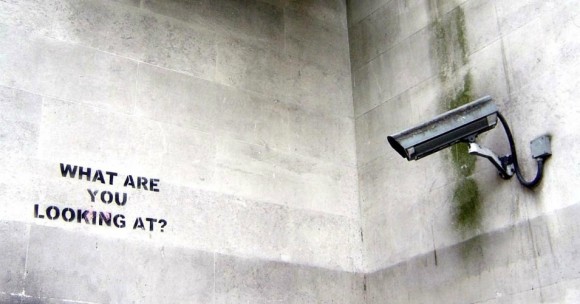aNewDomain — By next year, the FBI will reportedly be retaining 52 million photos in its facial recognition database, the Next Generation Identification (NGI). That’s why the fight for the right to be out of focus — that is, not in the NGI database and free of biometric records — is underway right now.
But the Electronic Frontier Foundation (EFF) and eight public-interest organizations walked out of the talks on the National Telecommunications Information Administration’s multi-stakeholder process this week.
The talks were supposed to get an agreement between the private and public sector on biometric-sensitive tools and procedures.
 The eight organizations involved in the talks held that the Silicon Valley honchos were not interested in safeguards. They were out to capture your data at any cost. They worry that, since corporations increasingly require that you be recorded everywhere, our rights are eroding.
The eight organizations involved in the talks held that the Silicon Valley honchos were not interested in safeguards. They were out to capture your data at any cost. They worry that, since corporations increasingly require that you be recorded everywhere, our rights are eroding.
AI tech’s goal of never forgetting a face is exactly what we should all be worried about.
The National Database
The NGI’s national database will include non-criminal and criminal photos. So all your public activities will be CCTV recorded, numbered and ready to pull up at any time. You will have an FBI Universal Control Number (FBI UCN), and a Biometric Set Identifier (BSI), which is a ” … new field on the IdHS (that) will provide pointers for all biometric types associated with an identity event.”
The EFF issued this statement after the talks:
We believe that people have a fundamental right to privacy. People have the right to control who gets their sensitive information, and how that information is shared. And there is no question that biometric information is extremely sensitive. You can change your password and your credit card number; you cannot change your fingerprints or the precise dimensions of your face. Through facial recognition, these immutable, physical facts can be used to identify you, remotely and in secret, without any recourse.”
Deep Learning Frontier
Facial recognition is a sensitive issue for tech companies. The phenomenon has raised concerns all over the world, especially in Europe. “Tag Suggest,” which Facebook introduced in 2011, is not available in Europe because of privacy regulators, yet it remains in many prominent Facebook markets, specifically in the U.S.
Google’s social network, Google+, employs similar technology. But Google+ requires user consent via opt in. Further, Google banned third party software makers from using facial-recognition technology in apps designed for its Glass wearable computer.
 Yet Google has created Labeled Faces in the Wild, which is a database that has incredibly high accuracy when it comes to facial recognition. It had 77 percent accuracy from a data set of 260 million images.
Yet Google has created Labeled Faces in the Wild, which is a database that has incredibly high accuracy when it comes to facial recognition. It had 77 percent accuracy from a data set of 260 million images.
You are continually assured you are living in a functioning democracy. You are promised that your voice will be heard through voting and social media. But it also seems to be clear you will become part of a database, and your biometric details will forever be accessible by that democracy in which you live. Is that what you want? It’s not what I want.
The war for the right to not become a recorded data number is an informed citizen’s fight. Should the boycott of the talks go on, technology and security interest will move on. Guess who will win?
For aNewDomain, I’m David Michaelis.













